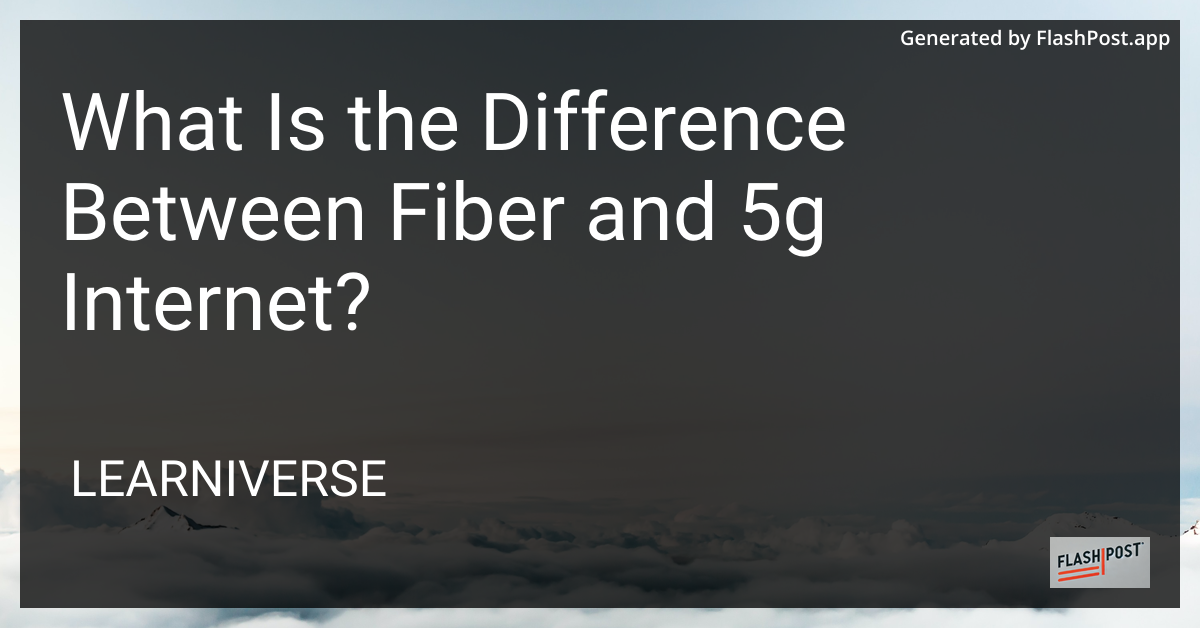What Is the Difference Between Fiber and 5g Internet?

In the ever-evolving landscape of internet technology, two terms you frequently encounter are fiber internet and 5G internet. Both promise high-speed connectivity, but they serve different purposes and have their own distinct advantages and limitations. Understanding the difference between the two can help you choose the right internet solution for your needs, whether you're browsing high-speed internet in Portland, Oregon or exploring new internet advertising methods.
What is Fiber Internet?
Fiber optic technology uses thin glass or plastic strands to transmit data as light signals. It delivers extremely fast internet speeds and is known for its reliability.
Advantages of Fiber Internet:
- High Speed: Fiber internet provides some of the fastest speeds available, which is ideal for activities like streaming, gaming, or video conferencing.
- Reliability: Less susceptible to interference and environmental factors compared to other types of internet connections.
- High Bandwidth: Capable of handling multiple devices and extensive data use simultaneously.
Limitations of Fiber Internet:
- Availability: Fiber infrastructure is not as widespread, especially in rural areas.
- Installation Cost: Typically higher installation costs due to the need for new infrastructure.
What is 5G Internet?
5G stands for the “fifth generation” of mobile networks. It offers faster speeds and more reliable connections on mobile devices than its predecessors, 4G and LTE.
Advantages of 5G Internet:
- Mobility: Enables high-speed internet access while on the go.
- Reduced Latency: Provides near-instantaneous response times.
- Broader Coverage: In urban areas, 5G coverage is rapidly expanding.
Limitations of 5G Internet:
- Infrastructure: Requires new antennas and technology upgrades, which may not be instantly available everywhere.
- Interference: Physical obstacles and dense areas can impede 5G signals.
Fiber vs 5G: Which is Right for You?
Choosing between fiber and 5G Internet largely depends on your personal and professional needs:
- If you need reliable, ultra-fast internet for a stable home or office connection, and you're located in an area where fiber is available and cost-effective, fiber is an excellent choice.
- On the other hand, if you require high-speed internet while traveling or you live in a region with limited fiber infrastructure, 5G may be the better option.
Whether you're setting up a new business, trying to connect a wireless printer without internet in 2025, or simply want to enjoy seamless streaming and gaming, understanding these differences can guide you in making an informed decision.
In summary, both fiber and 5G internet solutions have their unique strengths. Weighing the pros and cons in the context of your specific needs ensures that you stay connected with the best possible service. Consider your location, usage requirements, and budget to make the optimal choice.